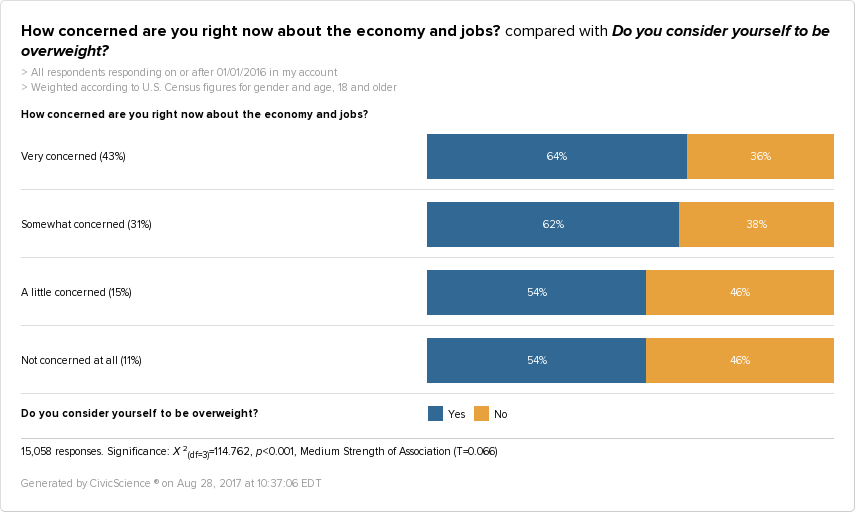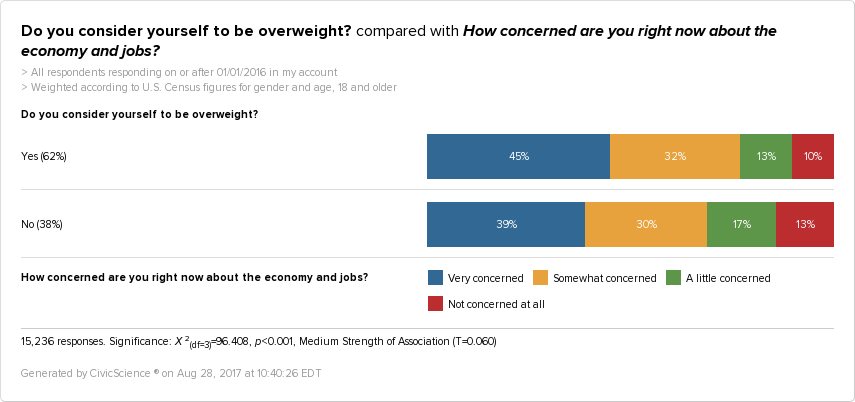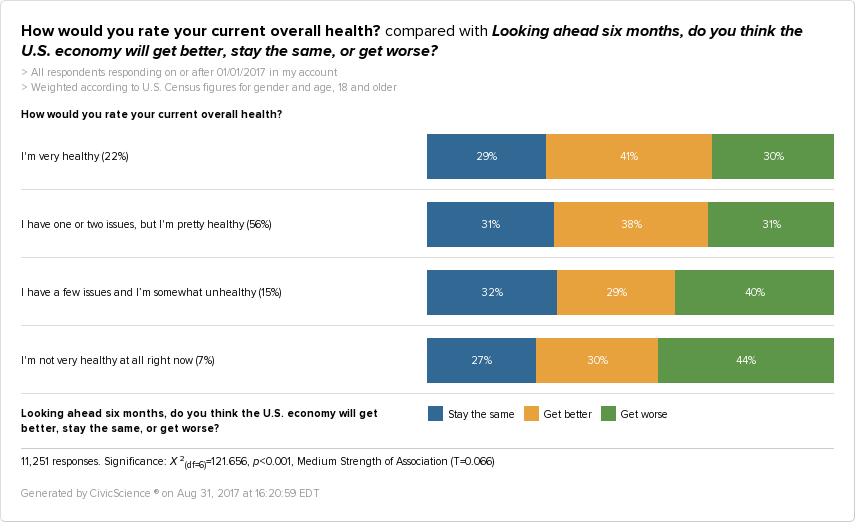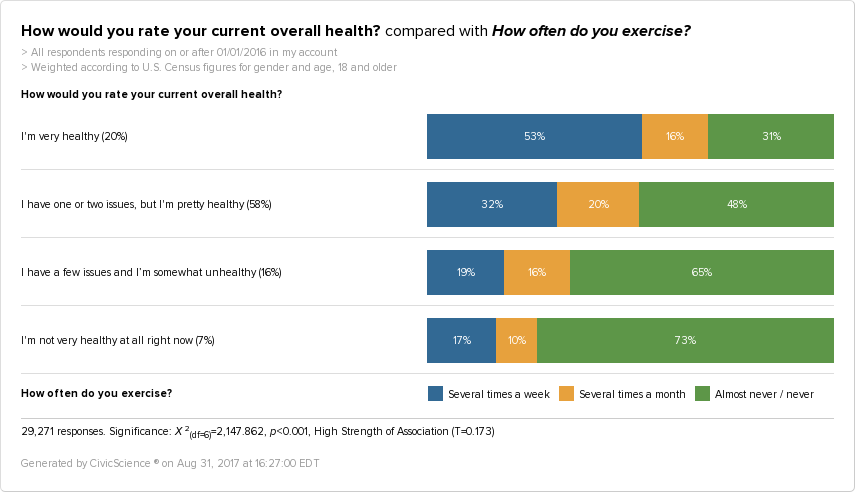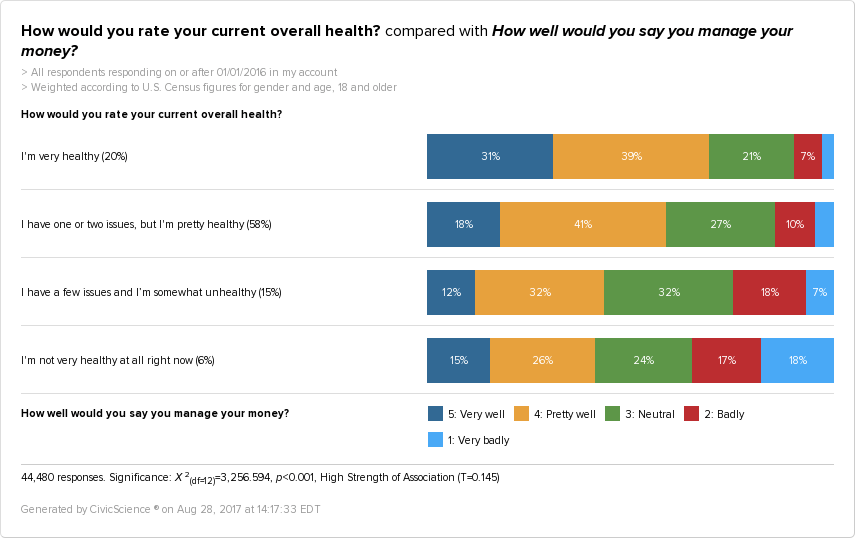The Gist: Our data reveal an interesting correlation between body weight, health, and positive economic outlook. We found that people who don’t consider themselves to be overweight and people who consider themselves to be very healthy also tend to be better money managers.
While collecting insights for our Summertime eBook, I noticed something interesting. The number of people who say that they don’t consider themselves overweight and who have a positive economic outlook are up from last year. I couldn’t help but wonder if there was a correlation here.
After a bit of digging, I found that a correlation between economic outlook and feelings about body weight, and overall health, can’t be ruled out.
The Correlation Between Body Weight, Health, and Economic Outlook
As you can see, those who answered that they are very concerned about the economy and jobs are more likely to say that they consider themselves overweight.
We see a similar trend if we flip the results.
Those who consider themselves overweight are 15% more likely to be very concerned about the economy, while those who don’t consider themselves overweight are 30% more likely to not be concerned about the economy at all.
If we look at another question through the lens of personal health rather than feelings about body weight, we find that people who expect the economy to get better over the next 6 months are also more likely to consider themselves very healthy.
Are Beta-Endorphins to Blame?
My first thought upon seeing this was that beta-endorphins may have something to do with these results.
Beta-endorphins are substances secreted by the pituitary gland to help the body mask pain and heal from physical trauma. They are widely believed to be the cause of the runner’s high. As Psychology Today explains, “voluntary exercise is also associated with long-term improvements in mental function and is the single best thing one can do to slow the cognitive decline that accompanies normal aging. Exercise has a dramatic antidepressive [sic] effect.”
So, yeah, I thought, people who consider themselves Very healthy are probably gleaning the positive effects of exercising more. In fact, our data does support this notion that people who exercise more are more likely to consider themselves very healthy.
We also found in our eBook that exercise is up this year from last year, just like a positive attitude about the economy, and positive body image.
But I dug deeper and found that people who consider themselves physically healthy are also more likely to consider themselves financially healthy.
So, it turns out that there does seem to be a correlation emerging. The jury’s still out on causation, but we’ll keep an eye on this trend to see how it evolves.
Bonus Material
We found a few extra insights we’d like to share on this topic:
People who don’t consider themselves overweight are much more likely to say they manage their money very well, be diligent savers, and be concerned about the environment.
People who consider themselves very healthy are also more likely to say they manage their money very well, be employed, and closely monitor their retirement savings.
People who answered that they expect the economy to get better over the next 6 months are also more likely to consider themselves generally healthy, exercise regularly, buy locally grown food, and volunteer more.
